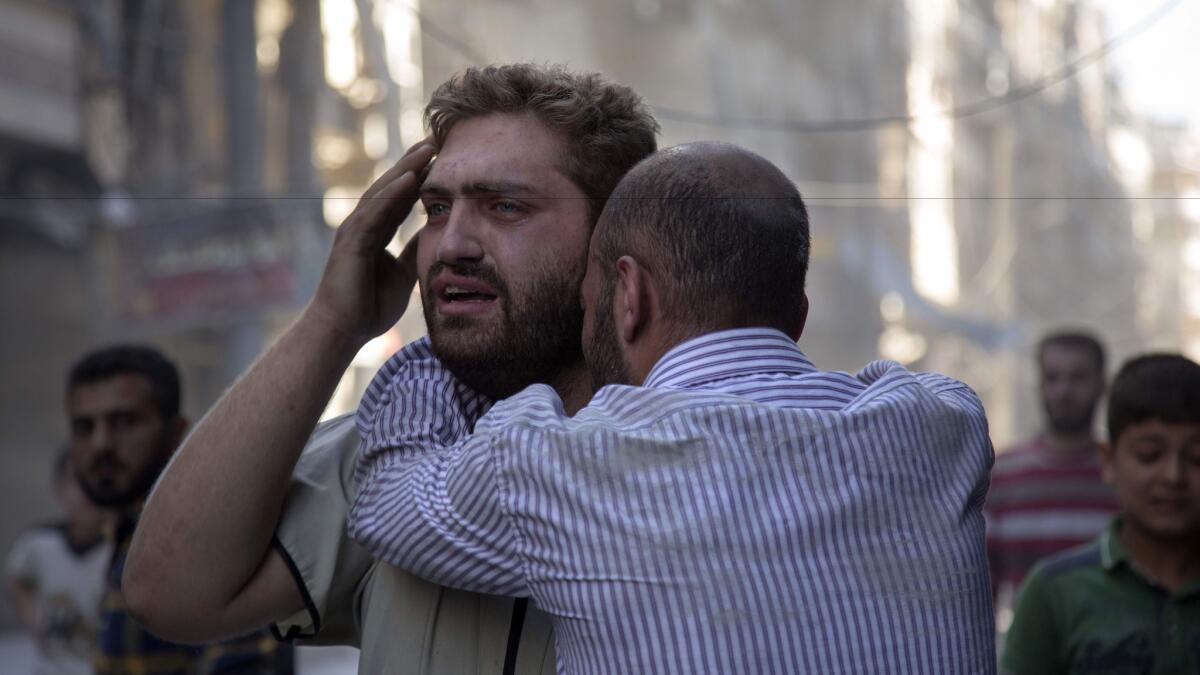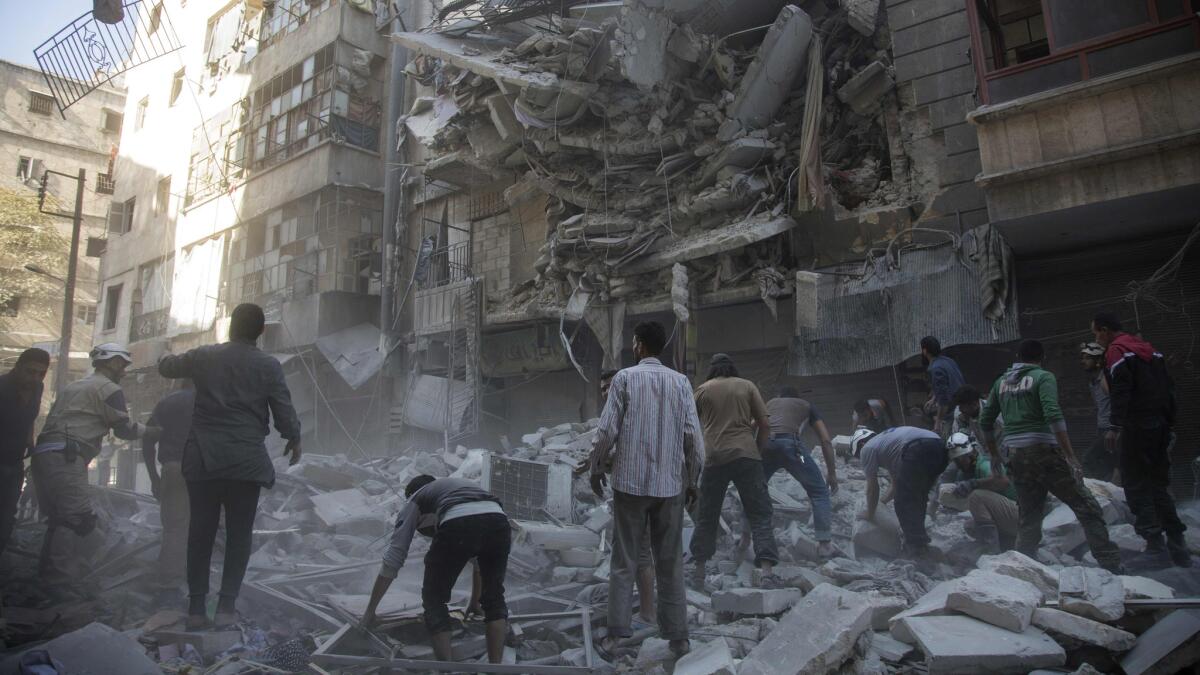Syrian government troops launch ground assault to retake Aleppo

Reporting from Beirut — For several days this month, a cease-fire brought some measure of peace to the embattled city of Aleppo, where warring sides in Syria’s civil war have long been locked in a stalemate.
But the lull in fighting quickly ended. The violence escalated dramatically Tuesday as pro-government forces launched a brutal ground offensive on opposition-held neighborhoods of the city.
Activists reached through instant messaging said the ground attack was aided by an “insane” aerial bombardment by Russian and Syrian warplanes targeting the eastern neighborhoods of Shaar and Mashhad.
The state news agency SANA reported Tuesday that government units seized control of the Farafra neighborhood from the rebels — or terrorists, as the Syrian government calls them. “Engineering crews are now diffusing and removing mines and explosive canisters planted by terrorist groups in the neighborhood,” the agency said.

The advance marks a breakthrough for Syrian President Bashar Assad in his efforts to take back an area that was once the industrial heart of the country and a key prize in a war that has stretched on for more than five years and left hundreds of thousands of people dead and turned millions more into refugees.
Whoever controls Aleppo controls Syria, the thinking goes.
The cease-fire this month was brokered by the U.S. and Russia. But each side soon accused the other of violations.
Then an international coalition aimed at fighting Islamic State killed dozens of Syrian soldiers in an airstrike that U.S. officials said was a mistake, and bombs that activists said came from Russian warplanes hit an aid convoy destined for eastern Aleppo.
The cease-fire lasted a week before the Syrian government declared it was over and went on the offensive.
In the wake of the latest gains, government planes dropped leaflets in eastern Aleppo telling residents that “there are no borders between us” and instructing them to “break the barrier of fear and return to your normal lives.”
“Syria brings us together, preserve it,” the leaflets said.
Activists said the government has overstated its advances. In an interview with German broadcaster Deutsche Welle’s Arabic channel, Rami Abdul Rahman, who heads the pro-opposition Syrian Observatory for Human Rights, said that troops had taken only a few buildings in Aleppo’s Old City quarter.
Still, there is little doubt that the tenor of war in Aleppo has shifted.
Pro-government troops encircled rebel positions in August. Over the last several days, the air campaign has killed more than 200 people, according to the Syrian Observatory for Human Rights, which is based in England and has a network of activists in Syria.
The group reported at least 12 people were killed in the bombardment on Tuesday, but expected the death toll to rise as rescuers continued to dig for victims.
“In Shaar, there are still four families buried in the rubble,” said Ibrahim Alhaj, a worker with the Syria Civil Defense rescue group.
Activists tweeting under the hashtag Holocaust_Aleppo have uploaded horrific images of victims exhumed over the last week from the pulverized stone and twisted metal detritus of collapsed buildings. The charity Save the Children said Sunday that its partner organizations in rebel-held areas of Aleppo reported that almost half of the casualties were children.
Diplomats continued to deplore the violence.
German Chancellor Angela Merkel, speaking in Berlin, said the government attacks were “carried out in an unacceptable manner against civilians,” the broadcaster Deutsche Welle reported. She also cast doubt on whether it would be possible to enforce a no-fly zone, which the opposition and its supporters say is needed to quell the bloodshed.
Her comments followed harsher condemnation of Syria and Russia at the United Nations last week.
In speeches before the Security Council, the U.S., Britain and France excoriated Syrian and Russian actions as barbaric and argued that only a political solution could end the Syrian crisis.
But the message appears to have been lost in Aleppo.
In an interview with Lebanese daily Al Akhbar, Hassan Nasrallah, head of the Lebanese Shiite faction Hezbollah, which has bolstered Syrian troops, said there were “no prospects for political solutions.”
“The decisive word remains in the battlefield,” he said.
Bulos is a special correspondent.
More to Read
Sign up for Essential California
The most important California stories and recommendations in your inbox every morning.
You may occasionally receive promotional content from the Los Angeles Times.











